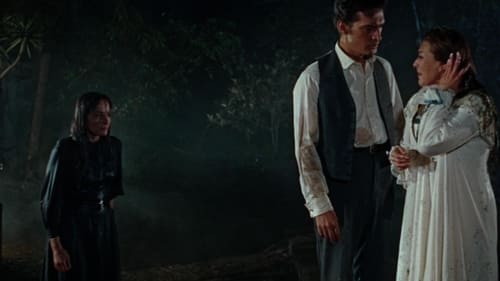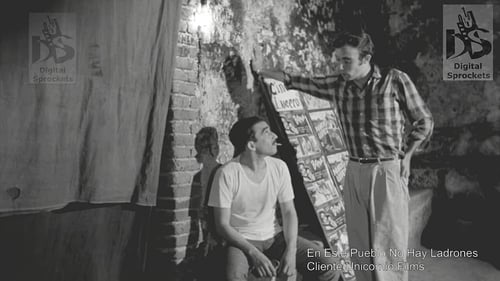
During 1950, Miguel Contreras Torres led a group of filmmakers to officially denounce William O. Jenkins' monopoly on film theaters, which was built throughout the country upon crime and corruption. Ever since, Uncle Miguel was ridiculed and eventually forgotten, but it is certain that his proclaim announced the separation of Mexican cinema and its audience. Discoveries may be found in the films made by Miguel, and bringing back to life these moving pictures might recover this history that was never told, a story that is almost lost and that Contreras Torres himself tried to pass on through his writings in The Black Book of Mexican Cinema.

Terror, transsexualism, and an eternal cult film. What is on the mind of horror film director Juan López Moctezuma and his fans, Manolo and Lalo, who are not only obsessed with the Mexican horror film 'Alucarda', but also believe in their hearts that they are its true characters? After finding the director in a psychiatric hospital, they kidnap him to make him remember his gloriously twisted past. An unclassifiable documentary film that uses interviews, stock shots and recreations of a past that may only have existed in the nightmares of its protagonists.

Germán Cipriano Gómez Valdés Castillo, a young radio announcer from Cuidad Juárez, succeeds in drawing attention to the pachuco movement through his character Tin Tan, laying the groundwork for a new form of binational and mass linguistic expression: Spanglish. He soon became a leading figure in theater and film on the American Continent. Singled out by critics as a destroyer of the language, he quickly won the approval of the public. His ability to improvise revolutionized the film industry. His talent as an actor, singer, dancer and comedian contributed to the Golden Age of Mexican Cinema. From El Hijo Desobediente to Capitán Mantarraya, from Cuidad Juárez to Havana, from mambo to rock, the legacy of Tin Tan makes him one of the great icons of Mexico today. This film tells his story as it has never been told before.

Himself
"Ni Muy Muy, Ni Tan Tan, Simplemente, Tin Tan. Tin Tan was one of the greatest comdedian-actors in the history of Mexican Cinema. He began his film career during the early years of what became the Golden Age of Mexican Cinema. Throughout the majority of his movies he plays the character of a pachuco; the Chicano/Mexicano in zoot suit, throwing out the tirili phrases and words, and jammin the jitty-bug. With the style and the slang down to a tee, he was picked up in Cd. Juarez Chihuahua by an acting troupe. Touring extensively through-out Mexico with the troupe landed him in Mexico City with film contracts. It was in those films that Tin Tan exposed the image of the pachuco, which Mexican Youth adopted. From the desert border-towns of Juarez y El Paso the style took off in various parts of the country, most notably in Mexico City

Himself
A documentary on the function of pornographic film and art during and after the Mexican revolution.

Writer

Anthology of clips from classic-era Mexican films, with reality-footage of elderly actors discussing their memories of the period.

A young architect returns from Europe to live in the house of his uncles and cousins, where someone pretends to be the Devil.

Santa Claus
A couple on the verge of getting married gets mixed up with a gang of thugs in this routine crime drama that underscores the Socio-economic disparity in the Mexican culture. The upper-class couple rides along with outsiders who go club-hopping and resort to petty thievery. After their adventure, the couple questions whether or not they are right for each other.

Jugador de dominó
Em um pequeno povoado, vive Dámaso, um vagabundo mantido por Ana, sua esposa, que é mais velha do que ele e que está grávida. Uma noite, ele entra no salão de Don Ubaldo, e leva três bolas de brilhar, isso é tudo que encontra por lá. A culpa recai sobre um forasteiro e, o crime gera uma grande crise na cidade, especialmente entre os homens, pois o bilhar é sua única diversão. Adaptação do conto de Gabriel García Márquez.

Em um pequeno povoado, vive Dámaso, um vagabundo mantido por Ana, sua esposa, que é mais velha do que ele e que está grávida. Uma noite, ele entra no salão de Don Ubaldo, e leva três bolas de brilhar, isso é tudo que encontra por lá. A culpa recai sobre um forasteiro e, o crime gera uma grande crise na cidade, especialmente entre os homens, pois o bilhar é sua única diversão. Adaptação do conto de Gabriel García Márquez.









